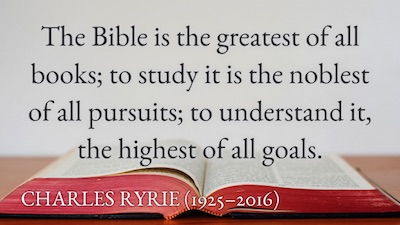Rest: Get Some!
· The average adult needs six to eight hours of sleep nightly.
· People who never take a one-day stop every week have higher rates of depression.
· Some 25 percent of Americans and 31 percent of low-wage earners take no vacation, unlike people in 138 other countries around the world.
· Although leisure and rest build resiliency and prevent depression, CNN Money reports that Americans forfeited $34.3 billion in vacation days from 2011.
· Annual vacations cut the risk of heart attacks in men by 30 percent and by 50 percent in women.
We need rest, time off, space for contemplation and recreation—and vacations. Performance increases after a vacation, with reaction times going up 40 percent. Vacations cure burnout, the last stage of chronic stress. All studies show performance increases with recharging and refueling.
Dr. Matthew Sleeth, author of 24/6: A Prescription for a Healthier, Happier Life and a former emergency-room physician, said, “For almost 2,000 years, Western culture stopped—primarily on Sunday—for about 24 hours. Even when I was a child, you couldn’t buy gasoline, you couldn’t buy milk. The drugstores weren’t open. The only thing that was open was a hospital. Even in dairy farming country, we would milk cows, but we wouldn’t bring in hay. And so society just had a day where they put it in park. (That) was Sunday… until the last 30 years or so. We go 24/7 now, and I think it’s having health consequences. I think more and more, there’s a consensus that it leads to depression and anxiety.”
In an interview with CNN, Seeth noted that when a doctor does a primary intake with a new patient, the physician asks about smoking, exercise, and diet, but nothing about how much people work.
One might think that those who serve a God who rested on the sixth day and a Savior who kept the Sabbath might do a better job of taking a day off. After all, rest is to time as giving is to money. Both require acts of faith, giving away a valuable resource and trusting God to multiply it. But instead of ceasing, we run ourselves ragged, sprinting by sight.
In fact, sadly sometimes Christian workers are the worst. After all, we’re doing holy work. How can we justify rest? Isn’t that laziness?
Reflecting on his job interview experience, a seminary president recalled the kinds of questions he answered from the committee that hired him. They seemed to love his description of uber-long and productive workweeks, asked nothing about his habits of rest and rejuvenation, and seemed to applaud all his symptoms of workaholism.
But it’s not just our leaders. We ourselves encourage each other to maintain impossible to-do lists. We o-h-h and a-h-h over another’s accomplishments, but rarely ask about or affirm time off. We schedule everything from committee meetings to baby showers and all manner of other activities seven days every week with no thought that others might appreciate the day off, even if we ourselves don’t take one.
Apparently, we take to extremes our freedom in Christ (e.g., Colossians 2:16–17). It seems that our work ethic combined with our recognition that we no longer “have” to keep the Sabbath drive us ever harder to accomplish the impossible. It’s true—the New Testament grants Christians freedom when to take this rest rather than requiring it on Saturday (the Sabbath). But it’s a matter of “when,” not “if.”
Lauren Winner, in an article she wrote long ago for Today’s Christian Woman, (“In Today’s Culture, What Does It Mean to Keep the Sabbath Holy?”) said, “Of course, Christians aren’t bound by Old-Testament Sabbath directives. Twice in his epistles, the apostle Paul made it clear that Sabbath observance, like other external signs of piety, is insufficient for salvation. But Jesus never said to forget the Sabbath completely…. Through the ages Christians have seen the wisdom of devoting one full day to rest and praise….
“The key to the Sabbath isn’t merely rest. Rather, it’s that in our rest we turn our attention to God, whose rest our Sabbath mirrors….
“I’ve found it helpful to mark the beginning of the Sabbath. On Saturday evenings, I gather with friends for an unhurried time of food, fellowship, and prayer.
“The way into Christian Sabbath observance isn’t so much about rules as orientation: away from the busyness of the week and toward the Creator who rested.”
In my own journey from workaholism to setting aside a day for rest, I have found one piece of advice especially helpful: to take a full “Jewish” day, from sundown to sundown rather than a Western day. Taking time off from bedtime Saturday until I got up Monday morning—taking all of Sunday off—was too long and made for a crazy beginning to my work week. But working on Saturday, ceasing in the evening, taking Sunday till evening for rest, and gearing up for the workweek that night has worked out much better.
Are you making time to cease from work? To rest? To worship? To be joyful? To turn your thoughts toward your creator and to take inventory of your life? In the words of the psalmist, “It is vain for you to rise early, come home late, and work so hard for your food. Yes, he can provide for those whom he loves even when they sleep“ (127:2, NET).


